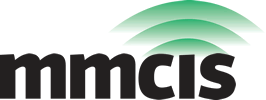|
Original: http://www.clickz.com/cgi-bin/gt/article.html?article=2720 Wednesday
:: 11.01.2000
Choose Your Words With Care Last week's article gave you a step-by-step plan for selecting the keywords and key phrases most likely to drive targeted traffic to your site. Here are some tips on avoiding keywords that are too common, using branded keywords, and knowing what to do when your keywords are likely to be misspelled. Finally, there's a summary checklist to verify that you are on the right path to leading prequalified visitors to your web site. Do not use keywords or key phrases that are too broad. Use modifiers to make generic keywords and key phrases more specific. For example, if your site offers insurance-related services, you might want to use health insurance quotes or auto insurance quotes. To prequalify your visitors, your keywords and key phrases should identify your niche. Let's say you're in the entertainment business. By choosing entertainment news, entertainment jobs, or entertainment center, you identify your niche and attract the kind of traffic you want. This is important no matter what you sell, be it apparel, books, health services, furniture, business services, or jewelry. A smaller, targeted audience is almost certain to result in more conversions than a large volume of traffic that got to your site thinking you were selling something you don't! Words such as software, Internet, cars, and radios are too general and will yield nothing but looky loos. But key phrases such as encrypted security software, Internet writing services, Ford Mustang two-door, and Bose wave AM/FM radio will attract visitors who are looking for exactly what you're selling. Not only that, single words and search engines don't mix. Do you use single words in everyday situations when you need something? When you walk into a restaurant and the waiter asks what you'd like to eat, you don't just say, "Food." Search engines can't read your mind either and have a very tough time returning relevant search results on single-word searches. A searcher will get fed up with wading through hundreds of result pages to find an e-commerce software solution for his or her auction site. He or she won't type in a search for software; it will be something like e-commerce auction software solution. Do not use trademark names other than your own in your key phrases. If you are a start-up shooting for the top and decide to use a competitor's name, watch out! Stay away from using other parties' trademarks or product names in your key phrases. On the other hand, if you really do want the term Kelley Blue Book, contact Kelley and request permission. Whether you'll be granted permission depends on potential affiliation. If you're a vendor for a product, it's quite possible the manufacturer will give you permission to use its name to promote and sell more product. However, trying to benefit from the use of another party's trademark is disingenuous and will likely be met with significant resistance and legal exposure. Using another company's trademark or product name to profit from its brand is totally unacceptable and breaches several federal trademark-protection laws. If you are branded, include your company name in your key phrases. RadioShack, for example, should use key phrases such as RadioShack computers, RadioShack electronic components, RadioShack telephones, and so on. On the other hand, if RadioShack were interested in recruiting new employees, it should use key phrases such as work for RadioShack, RadioShack jobs nationwide, and executive RadioShack positions to recruit at specific levels of human resources. This way, RadioShack would be using its brand to find the very best people, people interested in working for RadioShack. Remember that people misspell search words. A commonly used strategy that can be very effective is to select keywords and key phrases that incorporate likely misspellings. If you offer bookkeeping services, be sure to select bookeeping as one of your keywords and use this misspelling in some of your key phrases. Following all the strategies covered this week and last should help point prequalified visitors to your web site. In summary, here's your short list for developing your best key phrases:
|
Copyright 2001 INT Media Group, Incorporated. All Rights Reserved.
